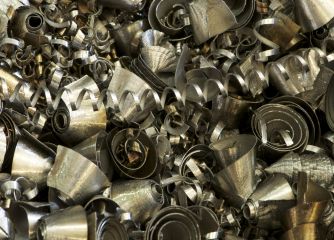

| Visitors Now: | |
| Total Visits: | |
| Total Stories: |

| Story Views | |
| Now: | |
| Last Hour: | |
| Last 24 Hours: | |
| Total: | |
How Much Money Are You Throwing Away? Metals Rush In Domestic Waste
A pilot plant for retrieving non-ferrous metals from municipal waste using advanced sensors has proven effective
Non-ferrous metals are increasingly in demandbecause of the electronics industry. “They are used in LED’s, computers, smartphones; this is a much bigger business now,” says Kate Hornsby, Waste in Social Environment manager at the Technical University Aachen, Germany. Shortages of these metals may occur in Europe. “Even though it is now in abundant supply, copper is listed as a critical metal in Europe because of its technological importance,” says Hornsby, who is also the coordinator of an EU-funded metal recycling project called SATURN.
Due to demand, recycling non-ferrous metals has become a priority. Besides, thecarbon footprint of recycled metal is much smaller than that of metals obtained from ores. For example, recycled aluminium represents an energy saving of 95% compared to aluminium obtained by the processing of bauxite ore.
The problem is that non-ferrous metals such as aluminium, copper, bronze, lead, and zinc are not magnetic. Therefore, they have been sorted from waste by hand. Due to labour costs, this work is moving to countries with lower wages. Yet, this created an issue because of the need to keep sourcing these metals from within Europe. What is more, legal requirement to pre-treat solid municipal waste before final disposal put some pressure for locally recycled metals.
This led to the creation, under the project, of a pilot plant in Saltzgitter in Germany, working since 2008 under the company name MeKon. In the plant, new sensor technologies are used to separate out the non-ferrous metals from municipal solid waste. Metals are identified easily because they absorb X-rays better than plastic or organic waste. Once an X-ray beam has located the metals, a laser beam checks their colour to separate out different non-ferrous metals. The data from corresponding sensors is then fed into a computer controlling air-jets that propel the different metals into separate bins.
This approach proved effective. “We found that the sorted metals coming out of the plant could go straight back to the foundries,” Hornby tells youris.com. The factory is now running on its own steam and is extremely profitable, she adds.

Credit: http://www.youris.com
“This technology is a necessary innovation–it will move the mixed waste away from landfills and incineration plants into recycling,” comments Ross Bartley, Environmental and Technical Director at the European Metal Trade and Recycling Federation Eurometrec in Brussels, Belgium. He also sees this development as an opportunity for European industry to find a market world-wide–”instead of the mixed solid waste, Europe will sell the sorting technology,” he adds.
This process could go one step further, according to Peter Boeckx, purchasing director at recycling company Metallo-Chimique in Beerse, Belgium. He sees better sorting methods for metals allowing the development of “urban mining,” involving the recycling of untreated waste in old landfills. He concludes: “Copper ore typically contains 0.6 % of the metal. You might find more copper in old garbage dumps.”


